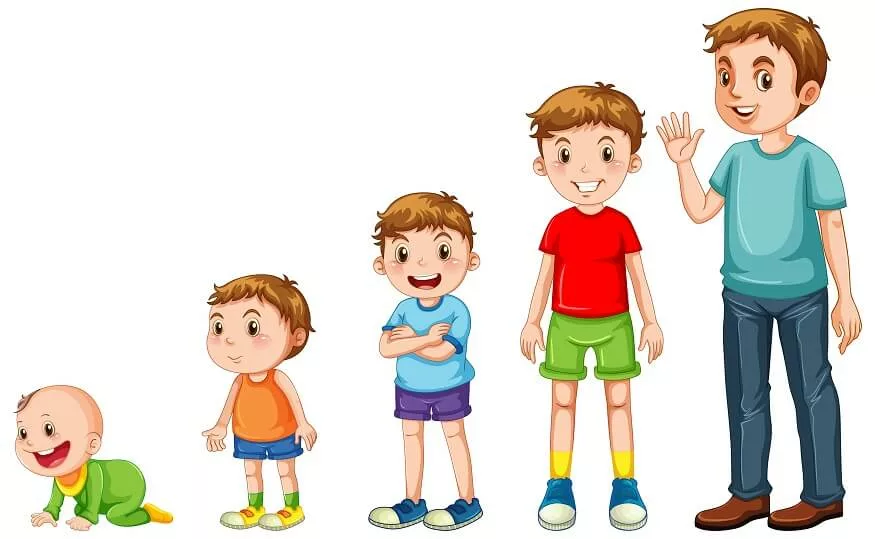 |
Watching your child grow is an amazing journey, filled with milestones and discoveries. One of the most important aspects of this journey is understanding the stages of child development. By being aware of these stages, parents and caregivers can better support their child's growth and address their specific needs at each phase.
The first five years are critical in shaping your child’s future. During this time, their brain is rapidly developing, influenced by the experiences they encounter. These early years lay the foundation for learning, behavior, and emotional health, impacting everything from social skills to how they handle challenges later in life. Early emotional, social, and physical development significantly influences their behavior, readiness for school, and habits that carry into adulthood.
Four Key Domains of Child Development
Children grow in four major areas, or “domains,” that are interdependent. Healthy development requires progress in each of these areas:
1. Communication : This area begins with basic responses and evolves into the ability to use language, understand others, and engage in complex conversations and relationships.
2. Physical Development : Involves gross and fine motor skills. Early on, this might mean reaching for objects, walking, and eventually mastering more coordinated activities like running and jumping.
3. Social-Emotional Development: This domain focuses on understanding and managing emotions and building relationships. Children learn how to form positive bonds, empathize, and regulate their emotions.
4. Cognitive Development: This area includes thinking, learning, problem-solving, and understanding the world around them. It is reflected in curiosity, adaptability, and learning key concepts like numbers, letters, and logic.
The 5 Key Stages of Child Development
Let’s break down child development into five major stages. Each phase represents different milestones and abilities that your child will work toward.
Stage 1: Newborn (0-3 months)
- Communication: Newborns mostly communicate through crying but begin to coo and make vowel sounds around 2 months.
- Physical: They develop the ability to track objects with their eyes, grasp things, and lift their heads.
- Social-Emotional: Babies start forming emotional bonds, responding to faces, voices, and making eye contact.
- Cognitive: They become curious about familiar faces and objects, reacting to new stimuli and showing signs of interest in their surroundings.
Stage 2: Infant (3-12 months)
- Communication: Infants start babbling between 3-6 months, and by 9-12 months, they use simple words and gestures.
- Physical: Infants begin sitting, crawling, and standing. By 12 months, they often start walking.
- Social-Emotional: They react to facial expressions and begin recognizing familiar people, showing more attachment and possibly stranger anxiety.
- Cognitive: Infants explore cause-and-effect relationships (e.g., dropping objects) and begin to understand simple words like "no" and their own name.
Stage 3: Toddler (1-3 years)
- Communication: Toddlers experience a language explosion, going from a few words to forming sentences by age 3.
- Physical: They refine motor skills like running, climbing, and using utensils. By age 3, they can dress themselves and use the toilet.
- Social-Emotional: Toddlers begin playing with other children, showing a broader range of emotions, and understanding how others feel.
- Cognitive: They recognize body parts, identify shapes and colors, and start to solve simple puzzles, showing significant cognitive progress.
Stage 4: Preschool (3-5 years)
- Communication: Preschoolers speak clearly, ask many questions, and their grammar improves significantly.
- Physical: Their motor skills develop rapidly, allowing them to ride tricycles, climb, and do more complex tasks like cutting with scissors.
- Social-Emotional: They engage in imaginative play, form friendships, and start learning how to manage their emotions better.
- Cognitive: Preschoolers show a strong interest in learning. They can count, recognize numbers, tell simple stories, and begin reading basic words.
Stage 5: School Age (5-17 years)
- Communication: By age 5, children are using full sentences, telling stories, and showing advanced language skills.
- Physical: They gain independence in dressing, eating, and personal care. They also engage in more structured physical activities like sports.
- Social-Emotional: School-age children form more complex friendships, develop empathy, and become more socially aware.
- Cognitive: As their critical thinking improves, they understand abstract concepts, develop problem-solving skills, and refine their understanding of the world around them.
Conclusion
Understanding these key stages of child development helps parents and caregivers provide the right support at the right time. Every child develops at their own pace, but by recognizing their unique needs during each phase, you can create a nurturing environment that fosters growth across all developmental domains.
By offering this guidance and support, you can ensure your child reaches their full potential, both now and in the future.







